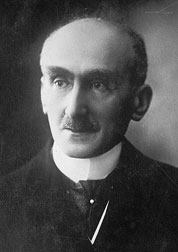Mystery deepens in memory research
 Our memories are
card-indexes consulted, and then put back in disorder by authorities
whom we do not control. Our memories are
card-indexes consulted, and then put back in disorder by authorities
whom we do not control.
- Cyril
Connolly
In simple words, memory is the ability to remember information,
experiences and people. However, like physical strength, memory can
differ from person to person. Some people can remember facts and figures
quite easily. There are others who tend to forget even the names of
their friends. The mysterious quality of memory has drawn the attention
of philosophers, psychologists and neuro-scientists. They have tried to
explain the slow erosion of memory which occurs as we grow old. They
also have come across people who could remember their childhood events
very vividly.
Eminent philosopher Henri Bergson (1859 - 1941) came out with an
intriguing theory when he said, “Memory is not a faculty of entering
recollections in a register or putting them away in a drawer. There is
no register, no drawer.” He believed that all memory is like the muscle
memory that enables the body to recall how to ride a bicycle or to swim.
 |
|
Henri Bergson: Memory is not a faculty
of entering recollections in a register or putting them away
in a drawer. There is no register, no drawer. |
William James, who pondered the mysteries of memory as deeply as
Bergson, said that we could develop our memory by forming diverse
associations with every fact we care to retain. James tried a range of
memory-training techniques and found them all a waste of time and
energy. He said that instead of memory, attention could be trained.
Classification
The celebrated psychoanalyst Sigmund Freud felt that our memories and
how they are arranged in our minds are vital parts of our personalities.
He classified memory into many parts. Our conscious awareness is
dominated by what we eat, hear, see or feel. The unconscious contains
memories and experiences, but we are not aware of them. They lie deep in
the unconscious and are difficult to access.
Despite such theories, we know that memory is a system necessary for
storing knowledge. Psychologists say that there are three storage
systems in memory: the sensory memory, short-term memory and long-term
memory. By using our sensory memory, we can store information coming in
through our senses in a split second. For instance, look at a rose and
then close your eyes. You will see the rose in your mind!
The short-term memory (STM) stores information active in our
consciousness. The news you read, your painful backache and everything
pleasant or unpleasant you hear are stored in your STM. Psychologists
say we can store seven items of information plus or minus two items. For
instance, we can easily remember a telephone number having 10 digits.
The duration of the STM is about 18 seconds. However, the time can be
extended through rehearsal or constant repetition of the information we
need to remember.
Information
The information stored in the long-term memory will remain there for
a long time. When we repeat information stored in the STM, it
automatically gets transferred to the long-term memory. According to
psychologists, the long-term memory consists of episodic memory that
retains our life experiences. The semantic memory retains factual
information such as names, years and dates of important events. The
procedural memory retains information on how to do things such as
driving a car.
As most of us cannot remember everything we read, we have devised
certain methods to remember important facts. A mnemonic is one such
devise through which we take in a big chunk of information which can
later be broken down into a phrase or sentence. A popular mnemonic in
biology is “Kings play chess on fine green silla.” It stands for the way
biologists classify different organisms on the earth: Kingdom, phylum,
class, order, family, genus and species.
Sometimes, memory plays tricks on us. However much we go prepared for
an examination, we fail to recall information when it is most needed.
Although the information is stored in the long-term memory, we find it
difficult to recall it. Psychologists say that this can be due to other
information getting in the way, excitement or mental fatigue.
Intrinsic force
The well-known neuro-scientist Dr Erantha de Mel says, “Memory is the
intrinsic force that binds our mental life, the thread that holds our
personal history and that makes it possible to grow and evolve
throughout life.” The magnitude of human memory capacity has never been
a debatable issue, but most of us fail to recall information.
However, emotional memories appear to be an exception because they
have a dominant impact on the mind. For instance, anyone affected by the
tsunami will recall what happened on that fateful day vividly. According
to Duke University researchers, amygdala, the brain’s emotional centre,
interacts with memory-related brain regions during the creation of
emotional memories. |

